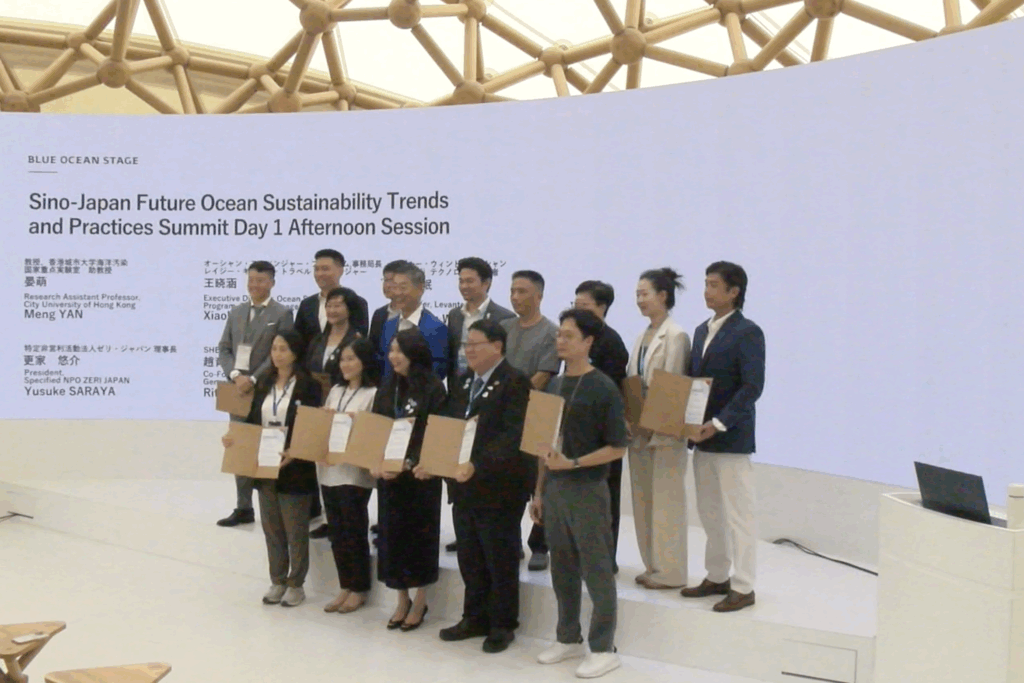
July 11th (Friday) and July 12th (Saturday), the event focused on the theme “Blue China: Marine Conservation and Circular Economy,” and featured presentations from researchers, companies, and organizations based in China. Presentations and discussions covered a wide range of topics, including marine conservation, resource recycling, and collaboration with local communities, providing a forum for exploring the challenges and possibilities for a sustainable ocean future.
Day 1: Future Trends and Practices of Marine Sustainability through a Collaboration between Japanese and Chinese Companies
In the first session, Liu Anqi, co-founder of the SHERO Project, gave opening remarks and introduced the SHERO Initiative, which supports women’s innovation and entrepreneurship. The SHERO Initiative addresses global challenges such as climate change and ocean health. The global ocean economy, worth $3-6 trillion annually and supporting the livelihoods of over 300 million people, is facing a crisis due to climate change, overfishing, and pollution. China is promoting ecotourism and eco-friendly fishing to address environmental challenges and balance economic growth with environmental conservation. Liu also emphasized the vital importance of cooperation between China and Japan for the further development of the ocean economy.
Next, Kentaro Arei, Partner at Formula Consulting, is working on a project connecting the Hong Kong-based SHERO and SARAYA Co., Ltd. He emphasized that having a common purpose is key to successful cross-cultural business collaboration, and stressed the importance of ensuring that this encounter is not a one-off but rather leads to future action.
Dr. Jiang Chaohui, Founder, CEO, and CTO of LeapFive Technology, focused on the use of technology for sustainable energy use and environmental conservation. Her presentation introduced specific examples, including an IoT solution that embeds sensors in wind turbines to monitor their operation, an experiment in artificially raising sea urchins using recycled resources, and a reuse model developed by Japanese scientists. The project attracted attention as an attempt to implement “sustainability as a corporate strategy.”
Tan Chee Wee, Head of Sustainable Development at the TPC Group, closed the first half of the first day. He reported on his company’s marine-related initiatives, using a mission in Indonesia as an example, to discuss ocean exploration missions throughout the Asia-Pacific region. Indonesia boasts the world’s richest underwater biodiversity, so understanding the current situation is crucial for developing conservation plans. He also spoke about the company’s efforts to contribute to earthquake disaster mitigation, including investigating changes in the seafloor since the Indian Ocean tsunami and mapping the risk of active fault activity.
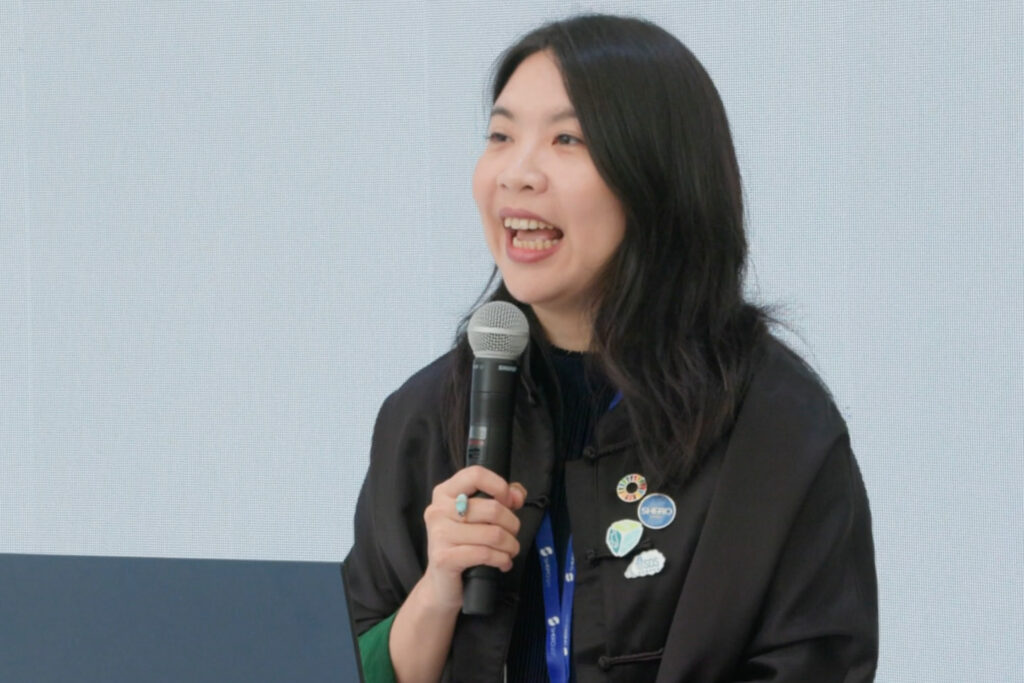
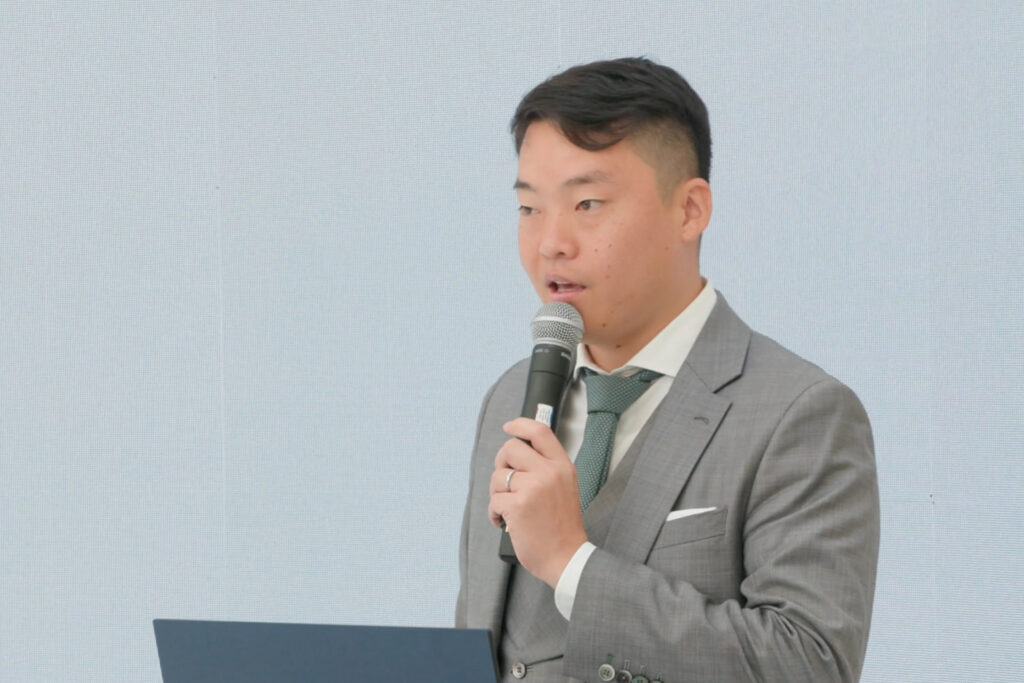
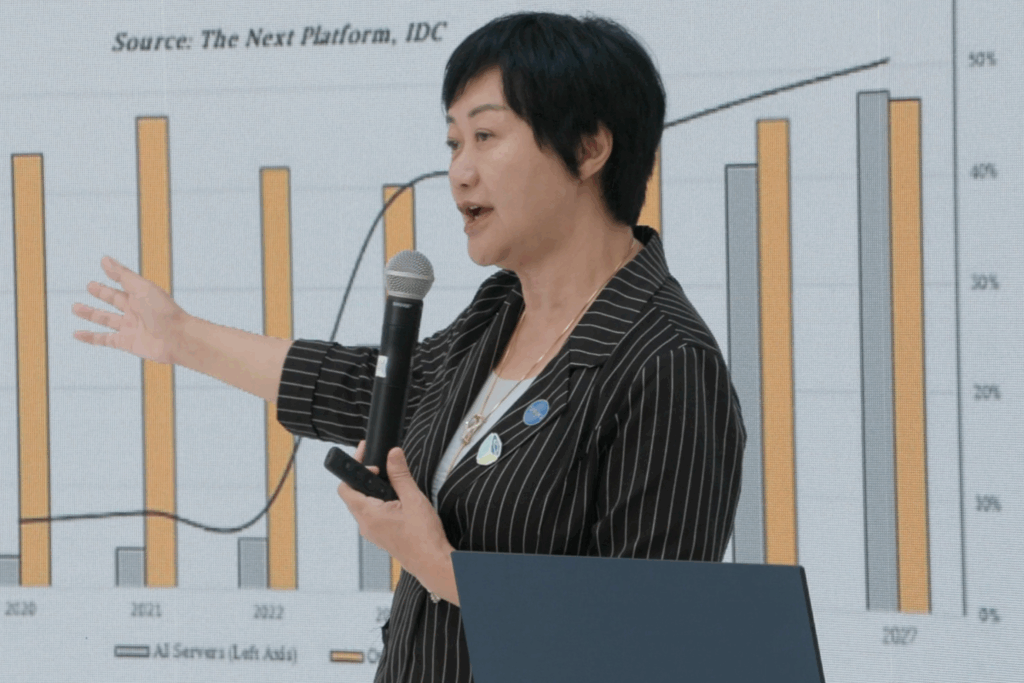
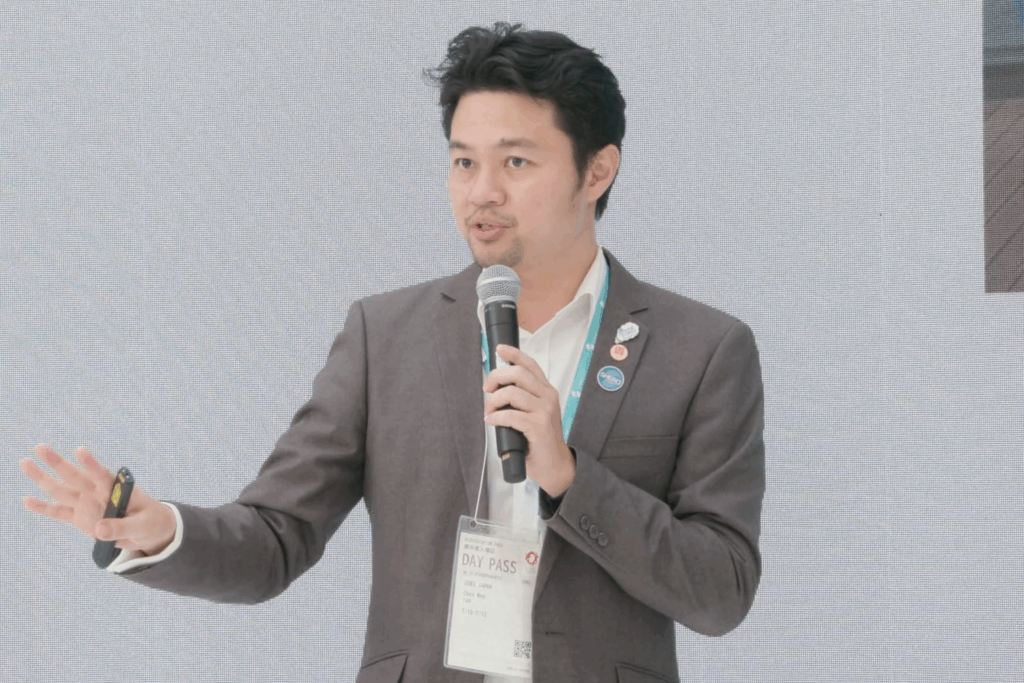
The afternoon session began with Professor Yan Meng of the National Key Laboratory of Marine Pollution at City University of Hong Kong, who presented on the current state of coral reef destruction caused by the overgrowth of “long-spined sea urchins” found along the Hong Kong coast, and his research into mitigating this damage. Drawing on examples from Japan and Norway, Professor Yan emphasized that through experiments in artificial fattening and aquaculture using eight types of food available in the Hong Kong market, she anticipates three benefits: food waste reduction, coral reef protection, and a new sustainable fishing model.
Next, Wang Xiaohan, Executive Director of the Ocean Scavenger Program and a travel industry professional, reported on the current situation of the Bajo people, a seafaring people living off the coasts of Malaysia and Indonesia. He pointed out that the Bajo people are struggling to make ends meet due to the decline in fishing resources caused by tourism development and the inflow of waste. Because they lack legal status on land, they are also excluded from education and medical care. She introduced local efforts to establish schools and support education, and stressed that “only education can break the cycle of poverty.”
Furthermore, Wang Minmin of Blue Wind Ocean (Shenzhen) Technology announced the development of next-generation zero-emission vessels. He demonstrated a prototype “flying ship” that features hydrofoils on the hull, reducing water resistance by approximately 70%, enabling high-speed, long-distance travel while achieving zero CO2 emissions.
Concluding the first day, Yusuke Saraya advocated the idea that “an economy without morals is corruption” and advocated for the compatibility of the environment and the economy. He reported on field-based activities, such as collecting plastic waste in Tsushima and supporting octopus fishing in Mauritania. Citing the ideas of Eiichi Shibusawa, Kinjiro Ninomiya, and Gandhi, he emphasized the importance of “improving society while increasing profits.”
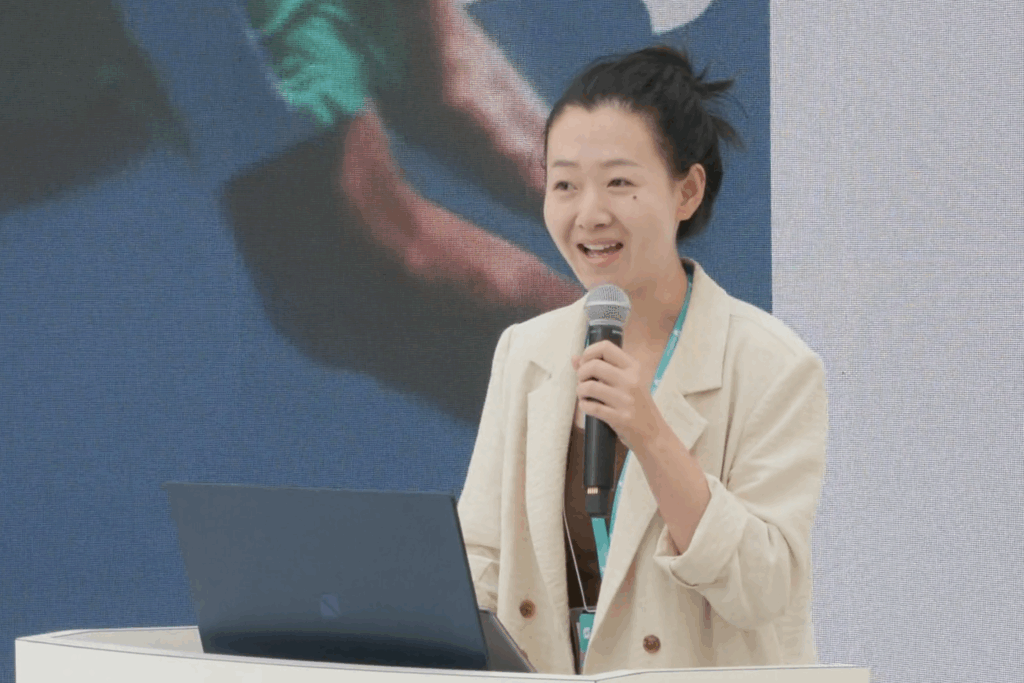
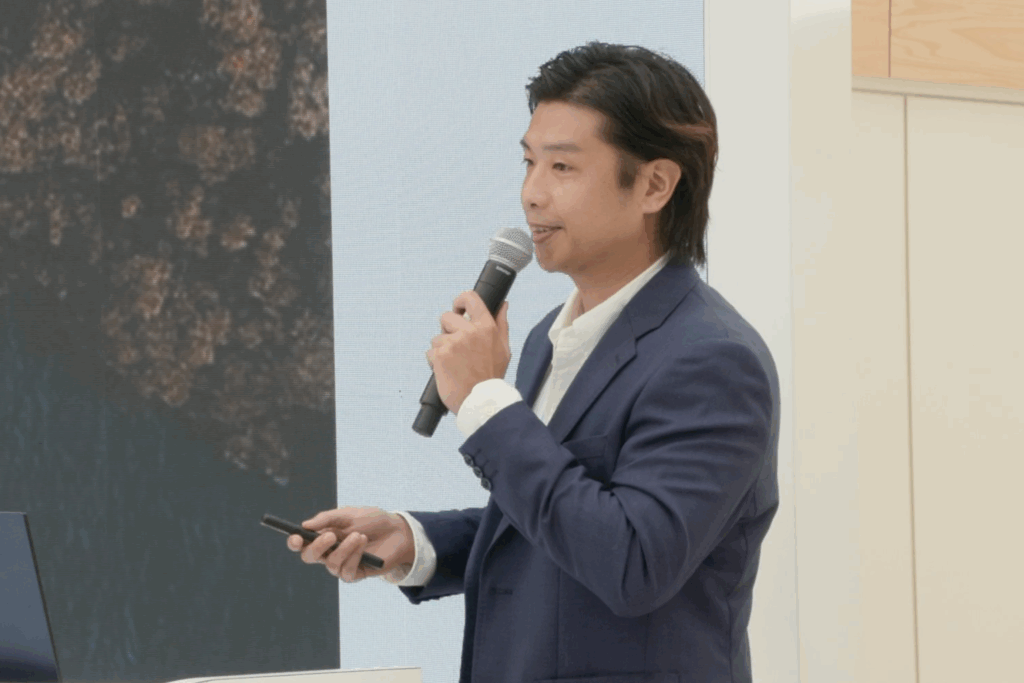
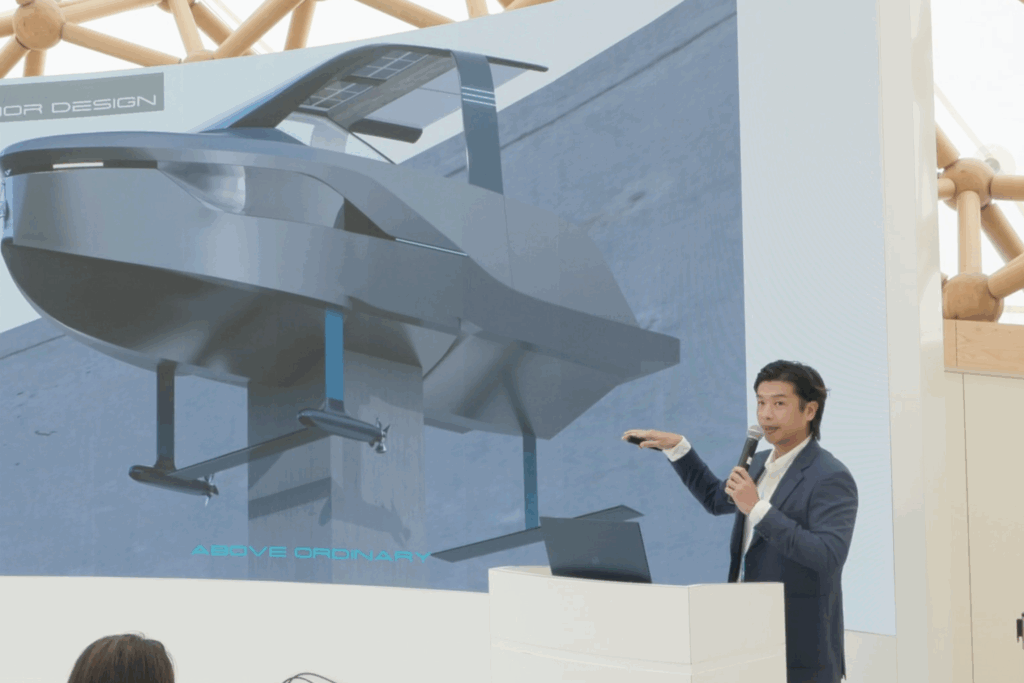
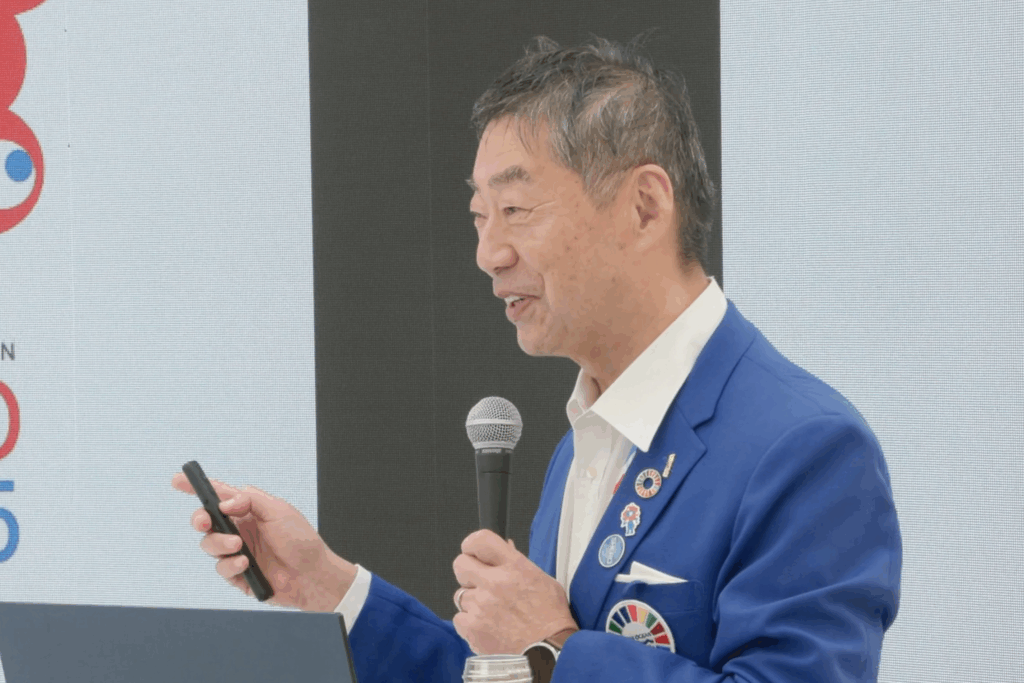
Future Trends and Practices of Marine Sustainability through Collaborative Businesses in Japan and China: Day 2
On the second day, Dr. Leung Mei Yee, Dean of the School of Energy and Environment at City University of Hong Kong, spoke about the “Oyster SOS” project, which utilizes oysters to regenerate the marine environment. Dr. Leung explained that oysters are not just edible, but also provide “ecosystem services” by purifying water, promoting biodiversity, and absorbing wave energy. He reported on research findings showing that “in areas where oyster shells were dropped, the number of oysters increased by 70% within nine months.” He also mentioned examples of promoting ocean cleanup efforts in collaboration with religious organizations and creating learning spaces incorporating citizen science. These findings demonstrated that ecosystem conservation through oysters is expanding beyond simple environmental activities into a citizen-participation social movement.
Next, Freya Mak Zhiyang, editor-in-chief of NetEase’s “Hello, ESG” column, introduced the latest trends and corporate practices in ESG management in China. “Hello, ESG,” operated by NetEase, is a platform that transforms the insights of companies, organizations, and individuals into action, connecting social issues with corporate activities. In her presentation, she provided specific examples of Chinese companies contributing to solving social issues through their core businesses and emphasized that corporate initiatives are expanding beyond environmental protection to include diversity and equality, particularly activities to promote women’s social contributions. Furthermore, “Hello, ESG” conducted interviews with Japanese companies such as Lawson and Sumitomo Mitsui Banking Corporation, and announced that it is promoting the sharing of cutting-edge knowledge between Japan and China. Furthermore, she introduced a “Green Relay” project, in which speakers handed each other eco-friendly gifts in a relay format, attracting attention as a unique initiative that allows people to experience the principles of ESG in their daily lives.
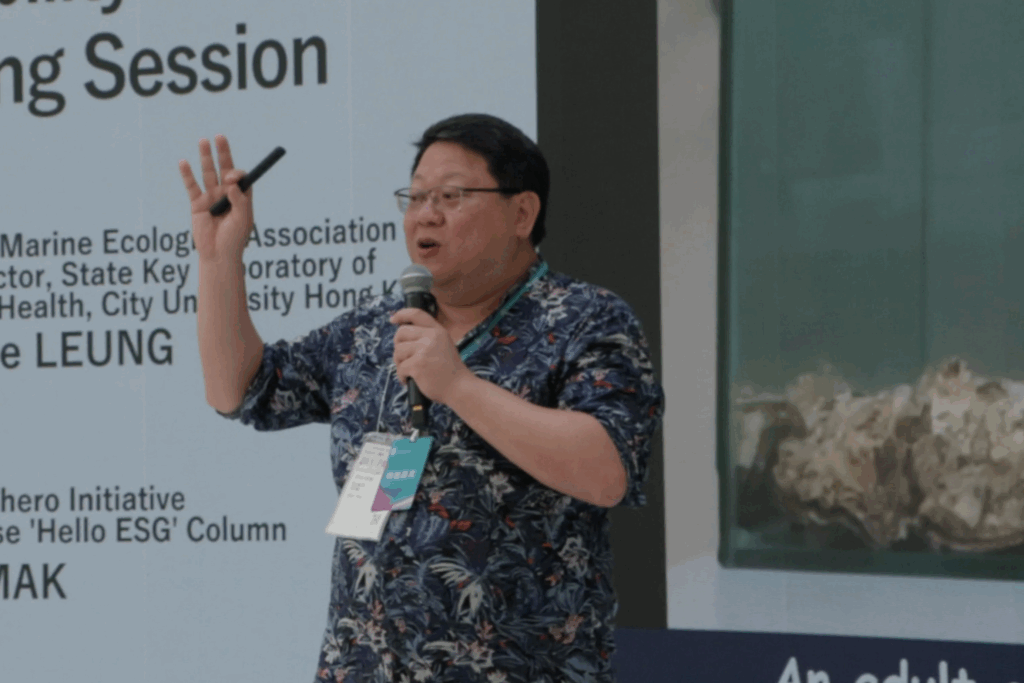
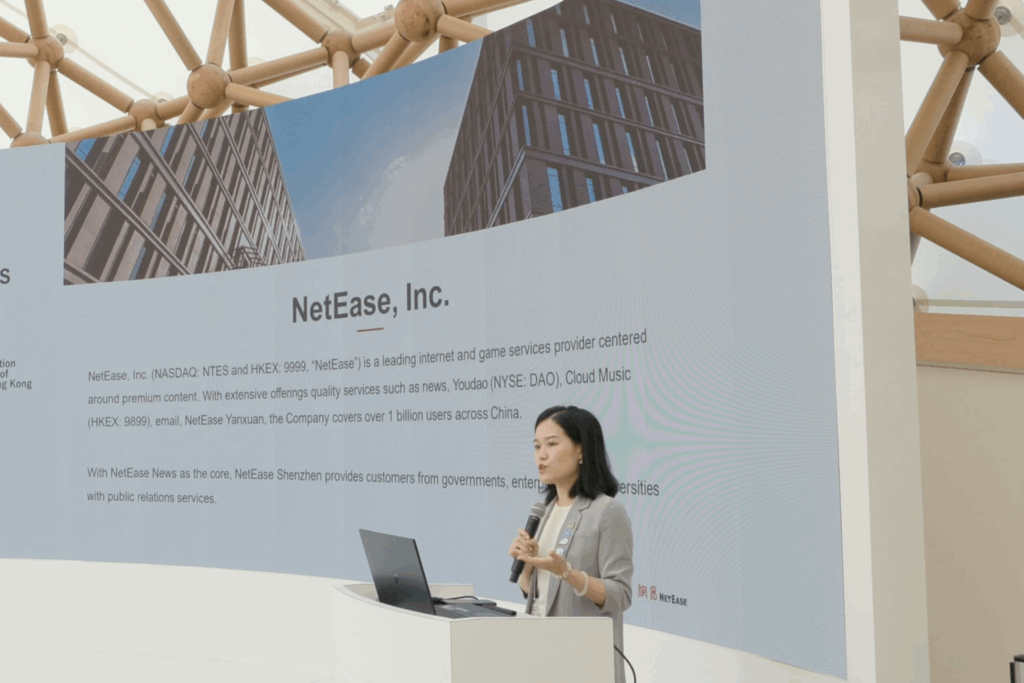
In the afternoon session, Li Hankun, founder of Future Missions, Inc., spoke about the innovative potential of algae. Algae are “tiny chemical factories” that efficiently absorb carbon and produce biodegradable alternatives to fossil fuels. Li suggested that algae-based hydrogels and plastics could transform a variety of industries, from medicine to packaging, as a new path to solving environmental problems.
SHERO Initiative Director Daniel Yao, who moderated the first day, took the stage to close the event. He concluded with these powerful words: “These two days have not simply been about sharing knowledge; they have also become a platform for people from diverse fields to connect and take action. Protecting the oceans starts with the daily actions of each and every one of us.”
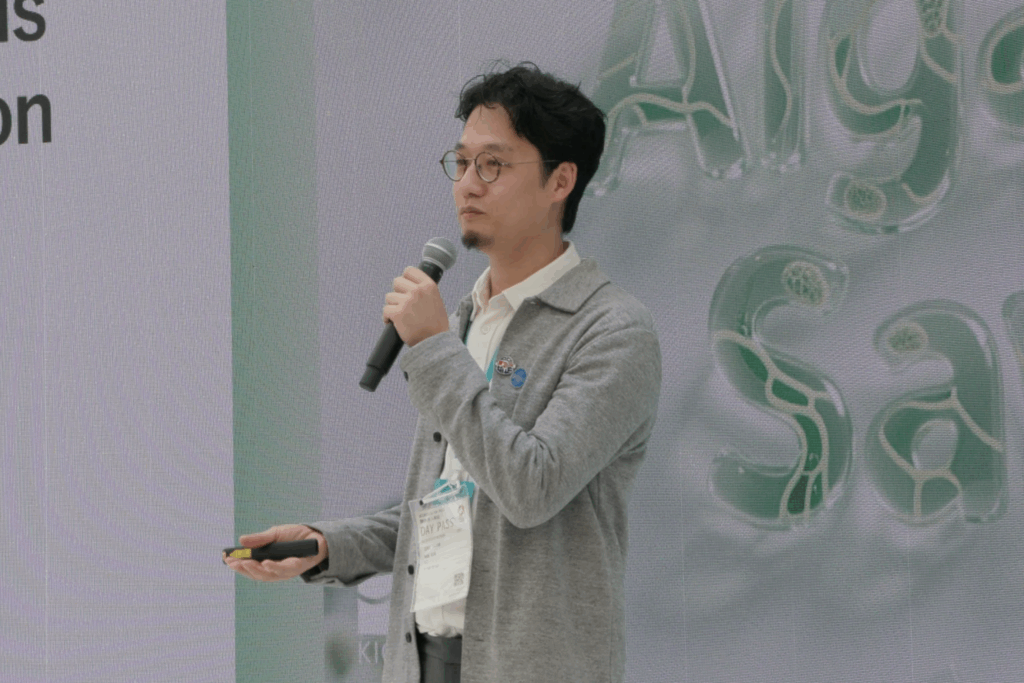
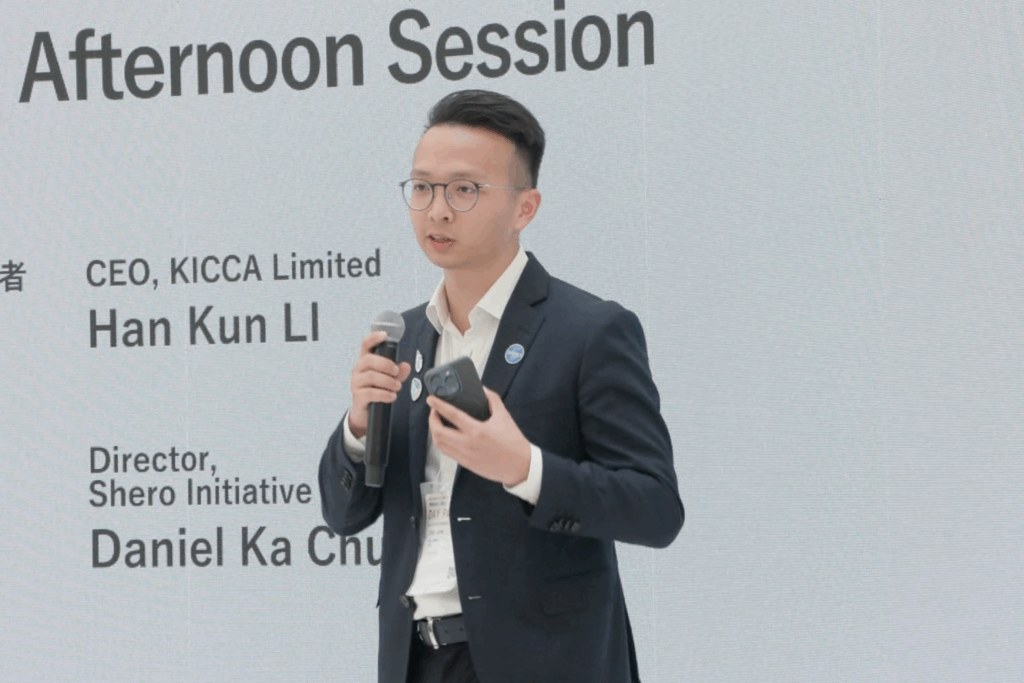
▼The event is available to watch on YouTube’s official BLUE OCEAN DOME channel. Please take a look.
【#068】Future Trends and Practices of Marine Sustainability through a Japanese-Chinese Corporate Collaboration: Day 1, Part 1 (ZERI JAPAN / Formula Consulting / Shero Initiative)
【#069】Future Trends and Practices of Marine Sustainability through a Japanese-Chinese Corporate Collaboration: Day 1, Part 2 (ZERI JAPAN / Formula Consulting / Shero Initiative)
【#070】Future Trends and Practices of Marine Sustainability through a Japanese-Chinese Corporate Collaboration: Day 2, Part 1 (ZERI JAPAN / Formula Consulting / Shero Initiative)
【#071】Future Trends and Practices of Marine Sustainability through a Japanese-Chinese Corporate Collaboration: Day 2, Part 2 (ZERI JAPAN / Formula Consulting / Shero Initiative)